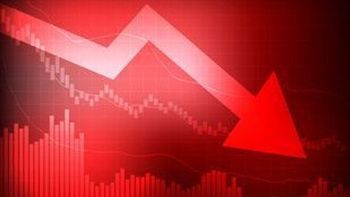
If housing bubble bursts, economy could be affected
Adding to the overall risk is the use of interest-only, adjustable-rate mortgages, which are hugely popular.
Q So much is written and discussed about a possible housing "bubble." It seems to me that if the bubble does burst, we have more to worry about than just home prices. Wouldn't the stock market also be affected?
Housing prices in many large markets, such as California, New York, and Boston, have skyrocketed, especially in relation to household income. In addition, the use of residential real estate as an investment has increased at dramatic levels, with funds being provided by leveraging the equity in current homes to buy second and even third properties. Adding to the overall risk is the use of interest-only, adjustable-rate mortgages (ARMs), which are hugely popular and have partially fueled the demand for housing due to their relatively low required monthly payment.
This popularity, however, is now causing a high level of market concern with the increased risk that when interest rates rise, some homeowners will no longer be able to afford their mortgages, leading to an increase in defaults and a slowdown of general consumer spending. The severity of the problem would depend on the magnitude of the rise in interest rates and also on the overall condition of the economy and job market. It may prove extremely difficult or even impossible,to afford a rising mortgage payment, especially if the homeowner loses his or her job in a weakening economy.
This can all lead to a greater number of mortgage payment defaults, thus effectively increasing the supply of homes that will be up for sale, but a weak demand for them because of higher interest rates. That scenario would most certainly cause a substantial drop in housing prices, and the infamous bubble would burst.
The impact of a housing crash on the overall economy and the stock market would most likely stem from a slowdown in general consumer spending. Decreases in consumer spending can affect businesses ranging from the retail industry to automobiles to the service sectors, which can all negatively impact stock prices. Of course, any business tied to home building would naturally be the hardest hit.
As is typical with specific market sectors, those that have had the greatest run-up in price also tend to fall out of favor quickly as that specific sector softens. Rising interest rates will also negatively impact the bond market because bond prices move inversely with interest rates.
It is also important to remember that the ultimate driver of our equity markets is earnings. Consumer spending drives corporate earnings.
If consumers are hit with a combination of rising mortgage payment obligations and potential high unemployment, there certainly can be a slowdown in spending for other goods, which may be reflected in lower stock prices. If, on the other hand, interest rates remain low and under control, the housing market may maintain its strength, thus delaying or even avoiding a potential bubble burst.
Newsletter
Stay current with the latest urology news and practice-changing insights — sign up now for the essential updates every urologist needs.






